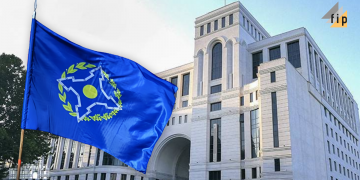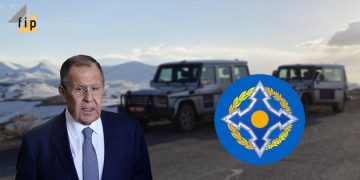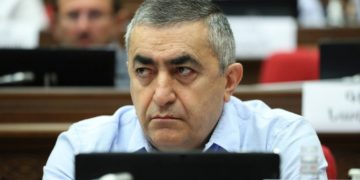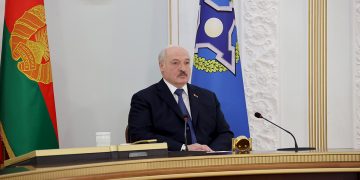The Deputy Speaker of the Russian Federation Council, Konstantin Kosachev, stated in an interview with “Argumenty i fakty” media that the jurisdiction of the CSTO does not apply to the conflict between Armenia and Azerbaijan.
In particular, the journalist asked if it was possible that in the context of the meeting of CSTO leaders to be held in Yerevan on November 23 the organization and Russia as its most powerful member provide more active support to Armenia and primarily militarily support in the conflict against Azerbaijan.
In response, the Deputy Speaker of the Federation Council Kosachev said: “The conflict between Armenia and Azerbaijan, in my opinion, does not fall under the jurisdiction of the organization. Each of the CSTO member states decides its own attitude towards it.”
He also added that supporting only one side will aggravate the conflict.
CSTO member RA was subjected to aggression
On September 13-14, Azerbaijan attacked the sovereign territory of RA, carried out military operations in Gegharkunik, Vayots Dzor, Syunik regions. On the day of the attack, a session of the Security Council was held under the leadership of RA Prime Minister Nikol Pashinyan, during which a decision was made to officially appeal to the CSTO, as well as Russia and the UN Security Council in relation to the aggression against Armenia.
Back in September, FIP.am showed through the Google Earth satellite map that the hostilities took place in the territory of the Republic of Armenia. According to the report of the Human Rights Defender Office of Armenia, 7,600 citizens were displaced, 4 civilians were killed, and 1 went missing and 7 civilians were injured following the attack by the armed forces of Azerbaijan.
Armen Khachatryan, the vice-chairman of the NA Committee on Defense, stated in October that following the attacks of 2021-2022, the Azerbaijani side occupied a total of about 127 square kilometers of the sovereign territory of the Republic of Armenia.
What does the CSTO Charter state?
Fact Investigation Platform, studying the CSTO Charter, revealed that in fact it clearly defines what position the organization should take in case of aggression against one of the member states.
According to Article 2 of the Charter, in the event of a threat to the territorial integrity, sovereignty, security and stability of any of the member states, the members immediately launch the mechanism of joint consultations to coordinate their positions, to eliminate the threat, to take and develop measures to provide assistance to the given state.
In the event of an act of aggression against any of the participating States, all other participating States will provide him with the necessary assistance, including military, and will also provide support at their disposal in exercising the right to collective defense in accordance with Article 51 of the UN Charter. ”
According to Article 4, “If one of the participating states is subjected to aggression by any state or group of states, then it will be considered as aggression against all the states parties to this Treaty.”
The same article also states that “in the event of an act of aggression against any of the participating states, the remaining participating states will provide the necessary assistance, including military assistance, and will also provide assistance with the means at their disposal in accordance with the procedure for the exercise of the right to collective defense, according to the UN of Article 51 of the Charter”.
Thus, the statement of the Deputy Speaker of the RF Federation Council, Konstantin Kosachev, that the conflict between Armenia and Azerbaijan does not fall under the jurisdiction of the organization, is untrue. Therefore, the claim that in such event each of the CSTO member states decides its own attitude is also false as the Charter clearly defines the sequence of actions of the member states in case of aggression against another member state of the alliance.
Lusine Voskanyan

 FACTOMETER
FACTOMETER










